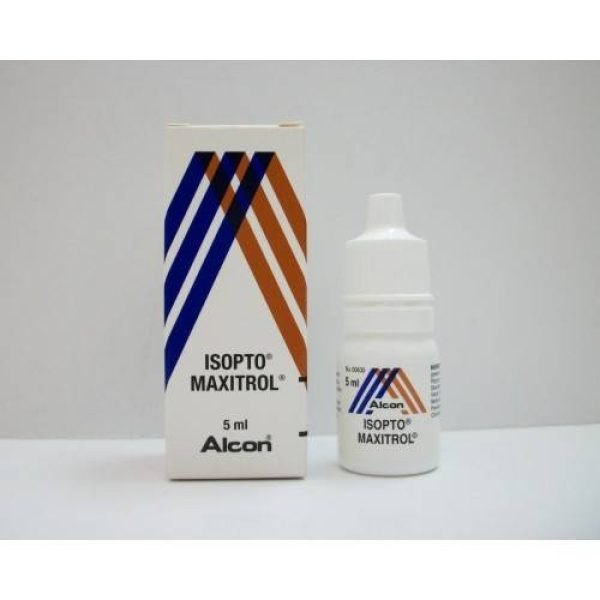The Benefits and Uses of Maxitrol: A Comprehensive Guide
Understanding Maxitrol
What is Maxitrol?
Maxitrol is a medication that is commonly used in various industries for its unique properties and effectiveness in treating certain conditions. It is a combination of three active ingredients: neomycin, polymyxin B, and dexamethasone. Neomycin and polymyxin B are antibiotics that help fight bacterial infections, while dexamethasone is a corticosteroid that reduces inflammation.

History and Development of Maxitrol
Maxitrol has a rich history and has undergone significant development since its introduction. It was first developed in the 1950s as a topical ophthalmic solution for treating eye infections and inflammations. Over the years, advancements in pharmaceutical research and technology have led to improvements in its formulation and effectiveness.
Applications of Maxitrol
Maxitrol has found applications in various fields, including ophthalmology, dermatology, and otology. In ophthalmology, it is commonly used to treat eye infections, conjunctivitis, and inflammations. In dermatology, it is used to address skin conditions such as eczema, dermatitis, and allergic reactions. In otology, it helps manage ear infections and inflammations. Additionally, Maxitrol has shown potential in other emerging applications, such as in the treatment of certain respiratory and gastrointestinal conditions.
Benefits and Effectiveness of Maxitrol
Efficacy and Clinical Studies
Extensive scientific research supports the efficacy of Maxitrol in treating various conditions. Clinical studies have demonstrated its effectiveness in reducing symptoms and promoting healing. For example, in ophthalmology, studies have shown that Maxitrol effectively reduces redness, swelling, and discomfort associated with eye infections. Similarly, in dermatology, it has been found to alleviate itching, inflammation, and other symptoms of skin conditions.
Safety and Side Effects
When used as directed, Maxitrol is generally considered safe. However, like any medication, it may have potential side effects. Common side effects include a temporary stinging or burning sensation upon application, blurred vision, and increased sensitivity to light. These side effects are usually mild and resolve on their own. It is important to follow the instructions provided by your healthcare professional and report any persistent or severe side effects.
Advantages of Alternative Treatments
Compared to alternative treatments, Maxitrol offers several advantages. Firstly, its combination of antibiotics and corticosteroids provides a comprehensive approach to treating infections and inflammations. This combination targets both the underlying infection and the associated inflammation, leading to faster relief and improved outcomes. Secondly, Maxitrol is available in convenient topical forms, such as eye drops and ointments, making it easy to administer and apply directly to the affected area. Lastly, Maxitrol has a proven track record of effectiveness, with many healthcare professionals prescribing it as a trusted treatment option.
Proper Usage and Administration
Dosage and Instructions
The dosage of Maxitrol may vary depending on the specific condition being treated and the age of the patient. It is important to follow the instructions provided by your healthcare professional or the product label. For ophthalmic use, a common dosage is one to two drops in the affected eye(s) three to four times a day. In dermatology and otology, the medication should be applied thinly to the affected area two to three times a day. It is crucial to wash your hands before and after application to prevent contamination.
Precautions and Contraindications
While Maxitrol is generally safe, certain precautions should be taken. It is important to inform your healthcare professional about any allergies or sensitivities to medications. Maxitrol should not be used if you have a known hypersensitivity to any of its active ingredients. It should also be used with caution in individuals with certain medical conditions, such as viral or fungal infections of the eye or skin, tuberculosis, or glaucoma. Pregnant or breastfeeding individuals should consult their healthcare provider before using Maxitrol.
Storage and Shelf Life
To maintain the effectiveness of Maxitrol, it should be stored at room temperature, away from direct sunlight and moisture. It is important to keep the medication out of reach of children. The shelf life of Maxitrol may vary, so it is advisable to check the expiration date on the packaging. Expired medication should be properly disposed of according to local regulations.
Frequently Asked Questions (FAQs)
Can Maxitrol be used for viral eye infections?
No, Maxitrol is specifically designed to treat bacterial infections and is not effective against viral infections.
Can Maxitrol be used for children?
Yes, Maxitrol can be used in children, but the dosage should be determined by a healthcare professional based on the child’s age and condition.
How long does it take to see results with Maxitrol?
The time it takes to see results may vary depending on the individual and the condition being treated. It is recommended to follow the prescribed treatment duration and consult your healthcare professional if there is no improvement or if the symptoms worsen.
Conclusion:
Maxitrol is a versatile medication that offers numerous benefits and applications in the fields of ophthalmology, dermatology, and otology. Its combination of antibiotics and corticosteroids provides an effective approach to treating various infections and inflammations. When used as directed, Maxitrol is generally safe and well-tolerated. However, it is important to follow the instructions provided by your healthcare professional and report any concerns or side effects. If you believe Maxitrol may be a suitable treatment option for your condition, consult with your healthcare professional for personalized advice and guidance.




